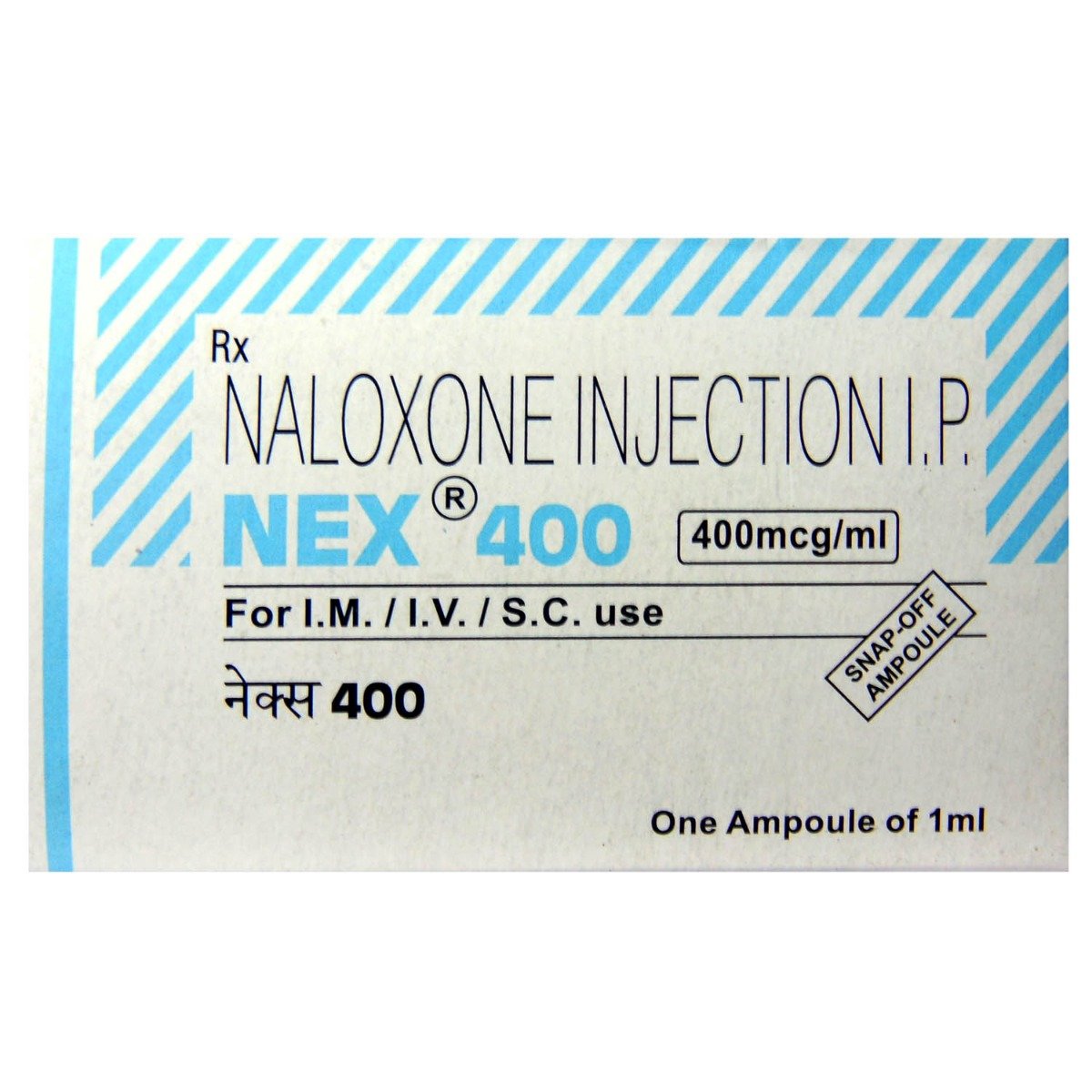Naloxone
About Naloxone
Naloxone is an opioid antagonist used to treat opioid overdose. This medicine is given as an emergency treatment where the use of high-potency opioids as a chemical weapon is suspected and as temporary prophylaxis of respiratory and/or central nervous system depression in military personnel and chemical incident responders.
Naloxone contains Naloxone, which belongs to the class of opioid receptor antagonists. It works by blocking the effect of opioid receptors and blocks the effects. Thereby it helps treat opioid overdose.
Naloxone may cause certain side effects such as nausea, vomiting, injection site reactions, dizziness, and headache. If Naloxone causes any serious discomfort, speak with a doctor. Naloxone will be administered by the physician in an emergency.
Naloxone is generally given on an emergency basis. The patient's caregiver should inform the doctor about his/her previous medical and medication history beforehand. Also, inform the doctor if the patient is pregnant, planning to become pregnant, or breastfeeding.
Uses of Naloxone
Medicinal Benefits
Naloxone contains Naloxone, which belongs to the class of medications called 'opioid-antagonist' used to treat opioid dependence. It works by blocking the effect of opioid receptors and thereby blocks the effects of opioids. It is used along with counselling and social support to help patients dependent on opioid drugs. This medicine is also used after surgery to reverse the effects of opiates given during surgery.
Directions for Use
Storage
Side Effects of Naloxone
- Injection site reactions (pain, burning or redness)
- Hot flushes
- Syncope (loss of consciousness)
- Dizziness
- Headache
Drug Warnings
Naloxone is generally given on an emergency basis. The patient's caregiver should inform the doctor about his/her previous medical and medication history beforehand. Also, let the doctor know if the patient is pregnant, planning to become pregnant, or breastfeeding. Inform your doctor if you have increased blood pressure, liver/kidney disease, or are taking any medications before receiving Naloxone. Do not use other medications without the doctor's notice, especially opioid-containing ones. It may cause precipitation of severe opioid withdrawal and risk of recurrent respiratory and central nervous system depression. Hence, the patient should be monitored carefully after administration of Naloxone.
Drug Interactions
Drug-Drug interactions: Naloxone may interact with opioid- medications (e.g. codeine, hydrocodone) and sedative medications (e.g. droperidol).
Drug-Food interactions: Consumption of alcohol should be avoided.
Drug-Disease interactions: Naloxone may interact with various disease conditions, including kidney disease & liver disease, depression and suicidal tendencies.
Drug-Drug Interactions Checker List:
Safety Advice

Alcohol
unsafeConsumption of alcohol is not recommended during treatment with this medicine as it can worsen the condition of the patient.

Pregnancy
cautionNaloxone should be used during pregnancy only if the potential benefit justifies the potential risk to the fetus. If administered during pregnancy, the doctor may need to monitor your unborn baby carefully after you receive the medication.

Breast Feeding
cautionConsult the doctor if you are breastfeeding. Caution should be exercised while using Naloxone in nursing mother.

Driving
not applicableNaloxone will be administered in the hospital setting.

Liver
cautionNaloxone should be used with caution in patients with liver disease. So, inform your doctor if you have liver impairment. Regular monitoring of liver function tests is advisable while on treatment with this medicine.

Kidney
cautionCaution is recommended while administering Naloxone to patients with renal impairment. So, inform your doctor if you have kidney impairment. Your doctor will weigh the benefits and potential risks before prescribing Naloxone.

Children
cautionNaloxone should be used in children only if advised by the doctor.
Habit Forming
Diet & Lifestyle Advise
- Eat foods high in carbohydrates, especially the complex carbohydrates present in starchy food items like legumes (e.g., beans, lentils and peas), root vegetables (e.g., potatoes and carrots), pasta and bread, along with protein in meals.
- A patient should consume supplements and vitamins as per their doctor's recommendation.
- The patient should change his drinking priorities and prefer drinks like apple cider, vanilla shake, juice or lemonade with sparkling water, etc.
- Get physical activity and enough rest.
- Reduce caffeine and stop smoking, if possible.
Special Advise
- It is recommended to monitor liver function tests regularly.
- Strictly warn patients against the use of opioids while on treatment with Naloxone.
- Monitor for injection-site reactions.
Patients Concern
Disease/Condition Glossary
Opioid overdose: Opioid overdose is a condition when someone takes opioid medicine (fentanyl) more than prescribed. This can further make the individual physically dependent on a substance. In this case, instead of making enough of its own opioids, the body has begun to rely on outside opioids to maintain normal function. Symptoms may include vomiting or making gurgling noises, blue skin due to poor circulation, slow breathing, unresponsiveness, confusion, etc.
FAQs
Naloxone contains Naloxone, which works by inhibiting the effect of opioid receptors and thereby blocks the effects of opioids.
No, Naloxone should not be used with an opioid analgesic, as it may cause serious adverse effects of the drug. If you have any concerns, please discuss them with your doctor.
Inform your doctor about your medical conditions, allergic reactions, and medications you are already taking (especially opioid analgesics). Also, let your doctor know if you are pregnant, planning to become pregnant, or breastfeeding.





